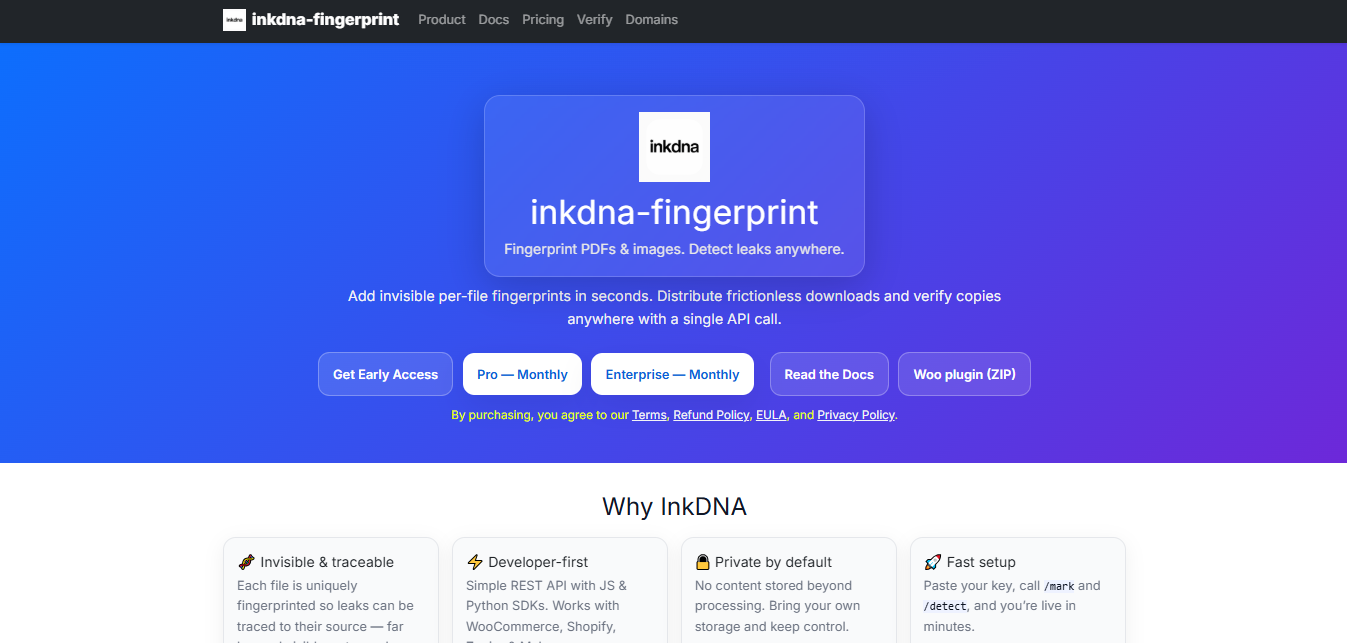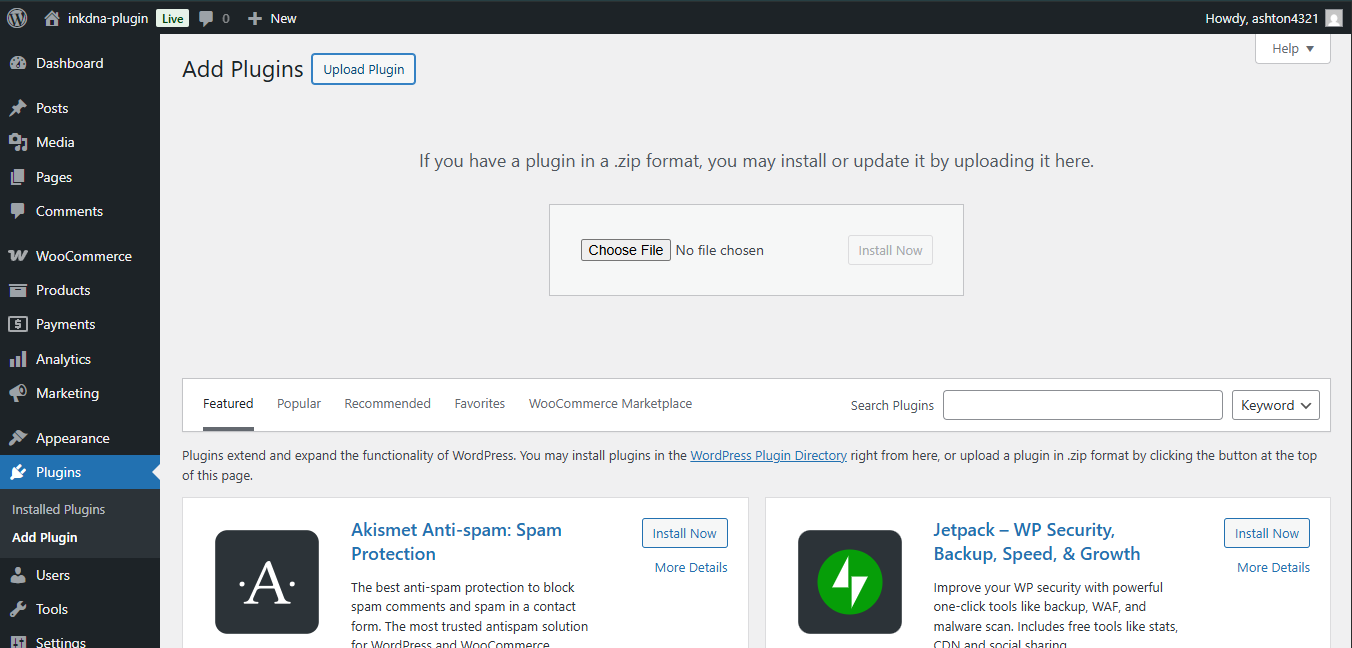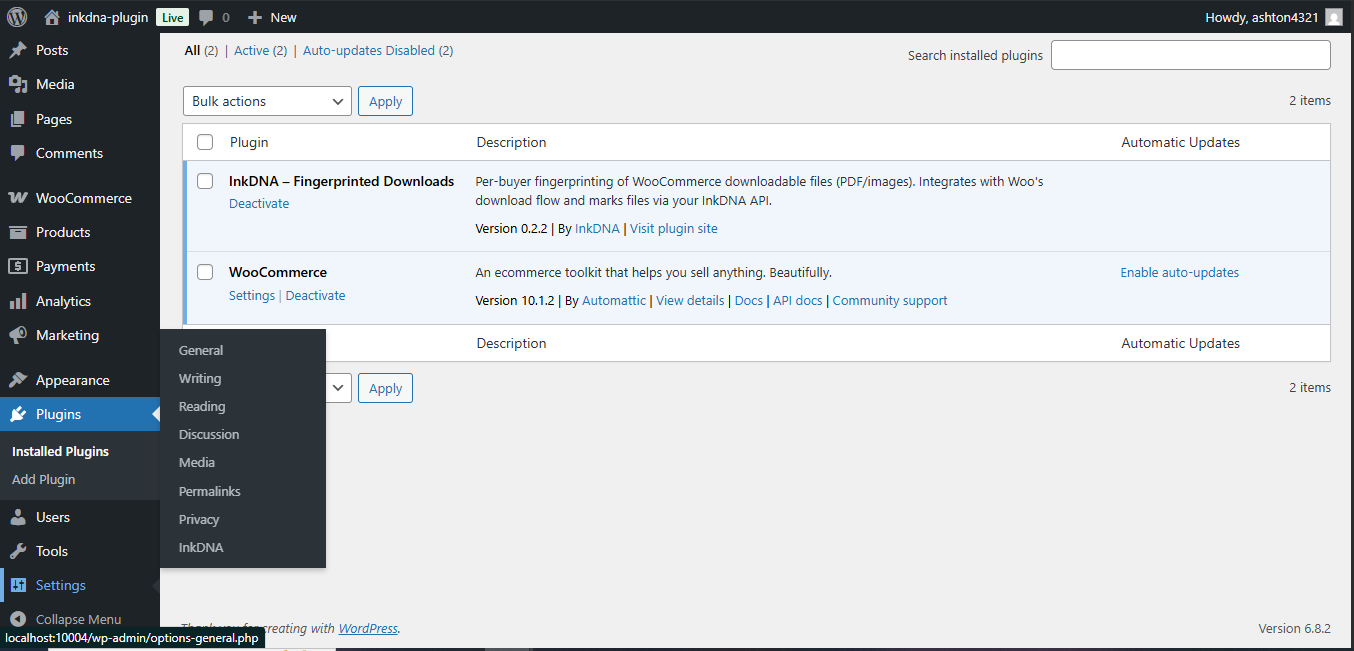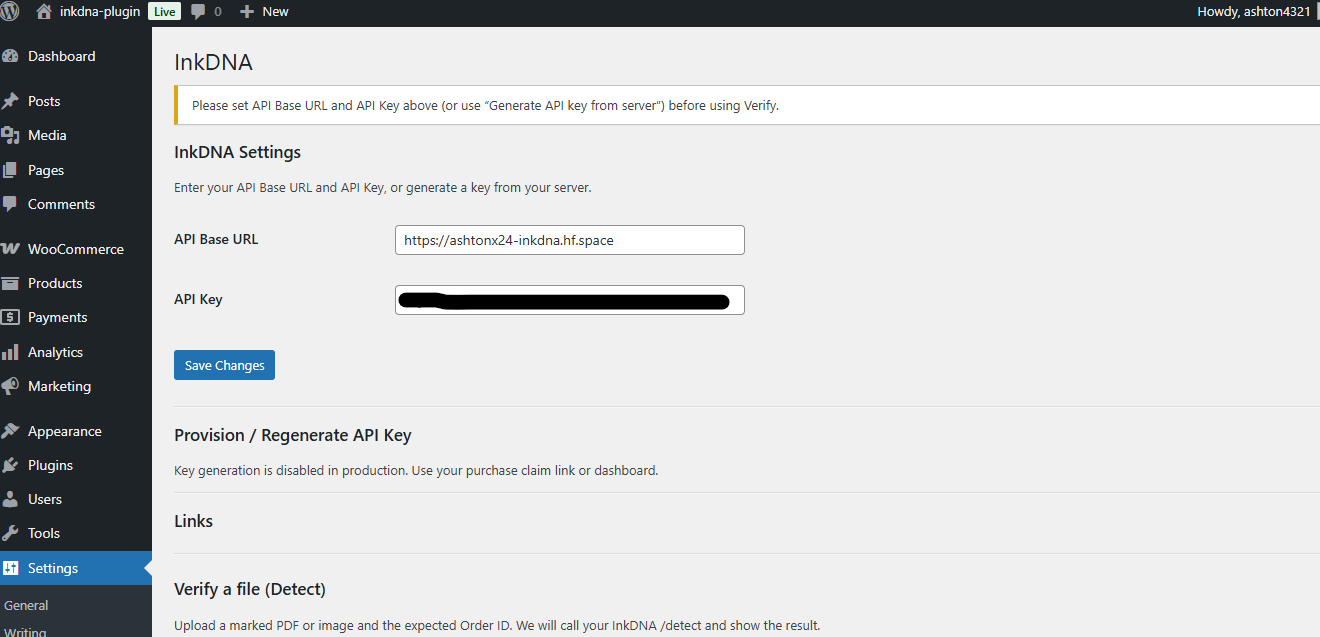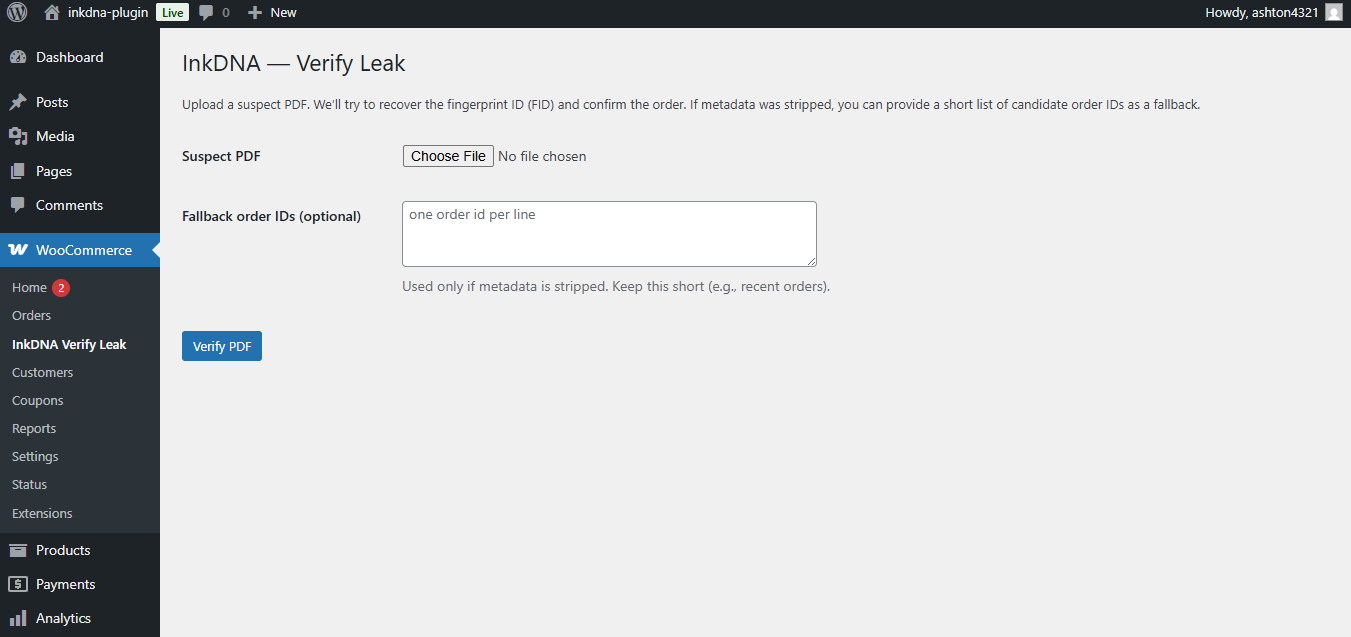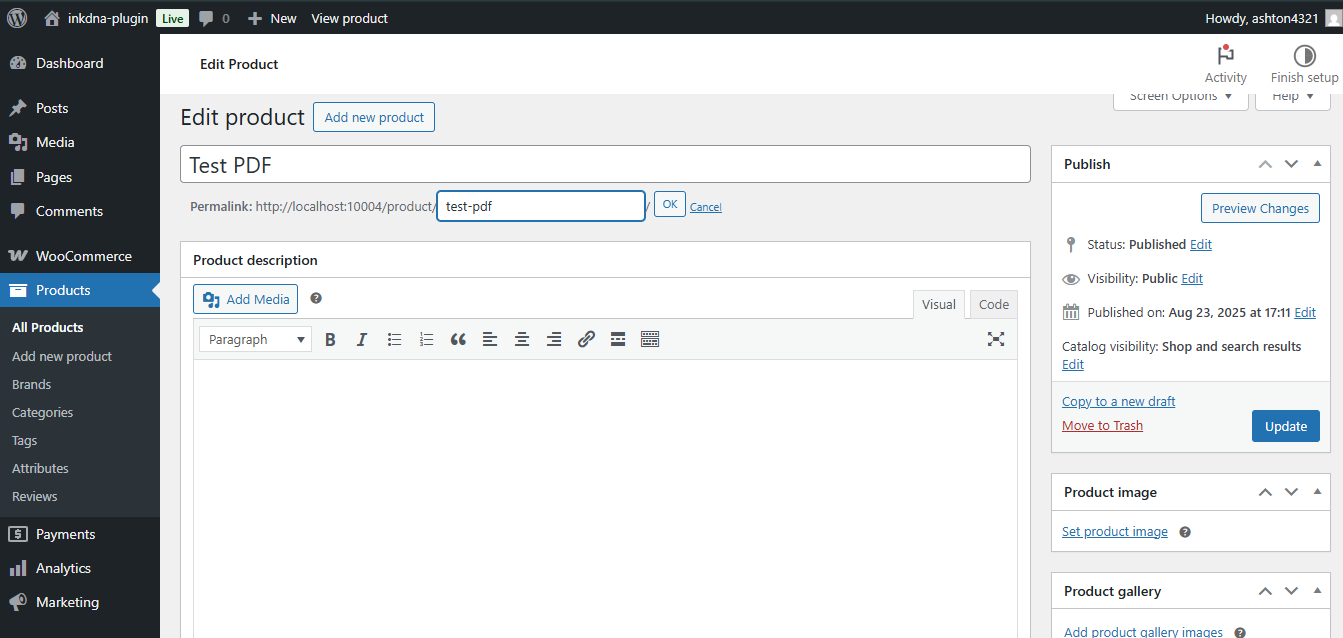1) Include the loader
Place this near the end of your <body> on pages that
host download links.
<script src="/plugin.js"
data-key=""
data-api="https://ashtonx24-inkdna.hf.space"
data-observe='a[href*=".pdf"],a[data-inkdna]'
data-mode="loose"
async></script>
Note: leaving data-key empty keeps this
example inert. On your site, paste your public key prefix (not the full
secret).
2) Your download link
Tip: use data-inkdna-order or ?order= so your
download carries a verifiable Order ID.
Use a normal anchor. Add data-inkdna and (optionally) an
order ID.
<a href="/assets/sample.pdf"
data-inkdna
data-inkdna-order="ORDER-123">Download your PDF</a>
That’s it. When a visitor clicks, the loader requests a fingerprinted
copy for this asset (and carries your order ID if provided).
Download (attribute)
Download (?order=…)
Docs: dynamic Order ID
How to pass an Order ID (pick ONE)
1) Explicit attribute (works anywhere)
Add data-inkdna-order to the link:
<a href="/assets/sample.pdf"
data-inkdna
data-inkdna-order="ORDER-123">Download</a>
2) URL parameter (no HTML changes)
Append a query param your platform already knows (the loader understands
these):
/assets/sample.pdf?order=ORDER-123
Accepted keys: order, order_id,
order-received, oid
3) Page hint (auto-share one order to all links)
Run this tiny script on your “thank you / order complete” page—no HTML
edits:
<script>(function(){
var el = document.querySelector('#orderNo, .order-number, [data-order-number]');
var ord = el ? (el.textContent || el.value || '').trim() : '';
if (!ord) { var q = new URLSearchParams(location.search);
ord = q.get('order') || q.get('order_id') || q.get('order-received') || q.get('oid') || ''; }
if (ord) { document.body.dataset.inkdnaOrder = ord;
document.querySelectorAll('a[href$=".pdf"],a[data-inkdna]').forEach(function(a){
a.dataset.inkdnaOrder = ord;
});
}
})();</script>
WooCommerce: on the thank-you page, Woo exposes an
order-received param. This one-liner is enough:
<script>(function(){
var q=new URLSearchParams(location.search);
var ord=q.get('order-received')||q.get('order')||'';
if(ord) document.body.dataset.inkdnaOrder=ord;
})();</script>
Optional: auto-detect Order ID from the page
If your platform exposes the order on thank-you pages, this helper
shares it with all links:
<script>(function(){
var el = document.querySelector('#orderNo, .order-number, [data-order-number]');
var ord = el ? (el.textContent || el.value || '').trim() : '';
if (!ord) { var q = new URLSearchParams(location.search);
ord = q.get('order') || q.get('order_id') || q.get('order-received') || q.get('oid') || ''; }
if (ord) { document.body.dataset.inkdnaOrder = ord;
document.querySelectorAll('a[href$=".pdf"],a[data-inkdna]').forEach(function(a){
a.dataset.inkdnaOrder = ord;
});
}
})();</script>
